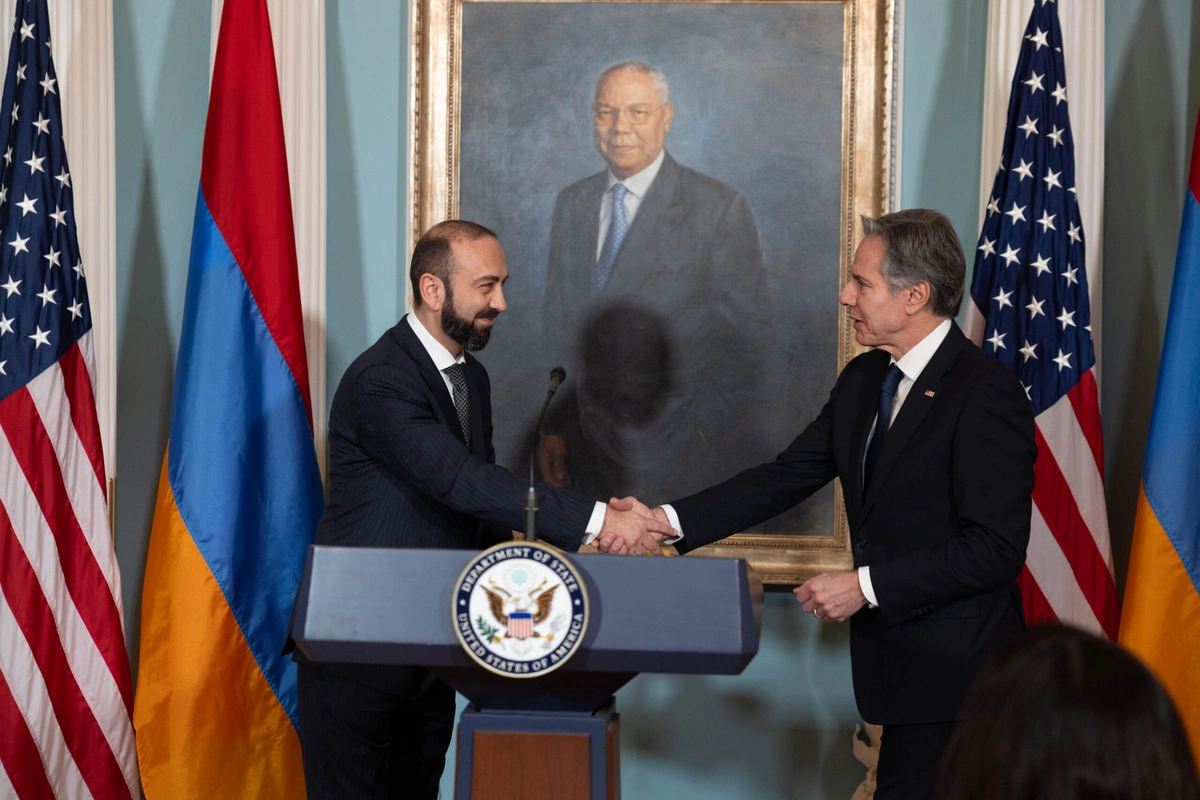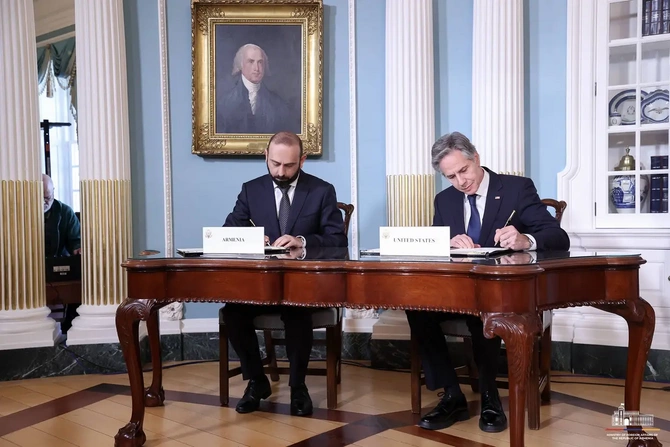
Photo: Secretary Antony Blinken, X, January 14, 2025
The Caspian Post presents an interview with a Turkish political scientist, Muhammed Kutlu.

- The strategic partnership agreement between the United States and Armenia is considered a significant event in the region. What are its primary objectives?
- The main objectives of this agreement are to distance Armenia from its traditional ally, Russia, and to strengthen its military capabilities for a potential revanchist war against Azerbaijan. However, these steps are more reflective of temporary decisions by the current U.S. administration and are unlikely to lead to long-term consequences.
- How would you assess Armenia's ability to strengthen its position against Azerbaijan?
- Armenia's demographic situation, with a population of only 2.2 million, 70% of whom are elderly, and its economic weakness make it nearly impossible for the country to strengthen its position against a strong and dynamically developing state like Azerbaijan.
- What does the strategic partnership agreement between Armenia and the United States entail?
- As part of the agreement, Armenian Foreign Minister Ararat Mirzoyan and U.S. Secretary of State Antony Blinken signed a series of arrangements, including Armenia’s participation in the U.S.-led international coalition ostensibly created to combat ISIS. The U.S. will also send a special border security team to Armenia and plans to deploy Patriot missile defense systems in the country.

- What are your thoughts on the U.S. goals in the region?
Answer: The U.S. aims to distance Armenia from Russia and strengthen its military position for a possible conflict with Azerbaijan. Additionally, Armenia’s large-scale arms purchases from India, likely encouraged by the U.S. given its influence over India, further demonstrate these objectives.
- Has Russia lost Armenia?
- It is premature to talk about Russia completely losing Armenia. Despite Armenia’s steps toward the U.S., Russian-language culture remains prevalent in the region, which is a significant factor. Furthermore, Russia is likely awaiting the return of Donald Trump, who may revise Biden’s administration's actions in the region.
- Is the U.S. trying to create a new front against Russia similar to Ukraine?
- The agreements signed and Armenia's military strengthening may seem like an attempt to open a new front against Russia. However, the actions of the Biden administration are unlikely to result in long-term changes, especially considering that its term ends on January 20. Donald Trump is expected to focus on ending conflicts and restoring U.S. power.
- How real is the threat Armenia poses to Azerbaijan?
- Even with military reinforcement, Armenia cannot present a serious threat to Azerbaijan. Prime Minister Nikol Pashinyan understands this reality and seeks to establish long-term agreements with Azerbaijan, including the opening of the Zangezur Corridor.
- How would you evaluate the prospects of U.S. and Armenian diaspora efforts?
- These efforts are constrained by the temporary decisions of the current U.S. administration. Turkiye's growing influence in the region and Pashinyan's understanding of regional realities hinder the long-term plans of the U.S. and the Armenian diaspora. Imperialist forces can no longer act as freely in the region as they once did.
Share on social media